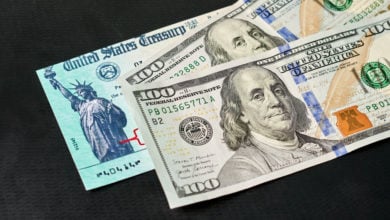President Obama and other politicians are hosting town hall meetings across the country as part of the process of passing the Healthy Americans Act of 2009. Right-wing elements are attacking the plan as an expensive government boondoggle that will end up being a burden for hard-working Middle America.
|
With their anti-poor rhetoric, these demagogues are trying to hide the reality that health care is costly mainly because of the enormous profits made from its delivery. Under the “free enterprise” system of capitalism, the bankers and corporate CEOs view health care services and products no differently than oil or tires, as commodities to produce, market and sell for a profit.
The pharmaceutical sector is especially profitable. U.S. drug companies are well represented in Fortune magazine’s annual list of the richest 500 companies. In 2007, drug companies on the list made $80 billion in profits.
With the spotlight on how to contain health care costs, big pharma is working hard to justify their profits. These capitalists explain that the enormous profits they make on some of their drugs offset the costs of research and development on drugs that don’t turn out to be useful.
This is a bogus argument. First, the drug industry spends even more on marketing than on research and development overall and is still able to pay healthy dividends. In a 2005 report by the Center for Public Integrity titled “Drug Lobby Second to None,” the top 11 U.S. pharmaceuticals spent nearly twice as much on marketing alone as they did on R&D.
Second, much of the basic science of researching and developing new drugs is done through publicly funded organizations like the National Institute for Health. The drug companies take the results, patent them and claim intellectual property rights to deny use of the discovery without paying extortionate monopoly prices.
WTO and TRIPS agreement protect super-profits
In 1994, in an effort to guarantee future super-profits, the big imperialist countries established the World Trade Organization and imposed the Trade-Related Aspects of Intellectual Property Rights Agreement on the world. The TRIPS agreement gave more rights to the holders of drug patents than to the billions of people in need of medicine.
A near rebellion by the developing world forced a concession from the imperialists in the form of compulsory licenses, which allow the production of vastly cheaper generic equivalents of a patented drug to meet a medical crisis. A well-known example of this was a struggle by countries devastated by the AIDS epidemic to treat people with HIV/AIDS with a drug that retailed for $10,000, but whose generic equivalent cost about $130. (British Medical Journal, December 2006)
An editorial in the British Medical Journal of December 23, 2006, directly challenges the premise of drug patents, “It is hard to see how the patent issued by the U.S. government for the healing properties of turmeric, which had been known for hundreds of years, stimulated research. Had the patent been enforced in India, poor people who wanted to use this compound would have had to pay royalties to the United States.”
The editorial proposes instead a medical prize fund bankrolled by the industrialized world. Prizes would be awarded for cures or vaccines for diseases. The size of the prize would be proportionate to the impact of the discovery, with larger prizes for curing disease that affects millions and smaller rewards for drugs that are similar to existing ones. The intellectual property would be released into the public domain for generic production.
Getting rid of the WTO and TRIPS is not a bad idea. A socialist society where private property and profit are outlawed would be the best solution for guaranteeing free and quality health care for all.







